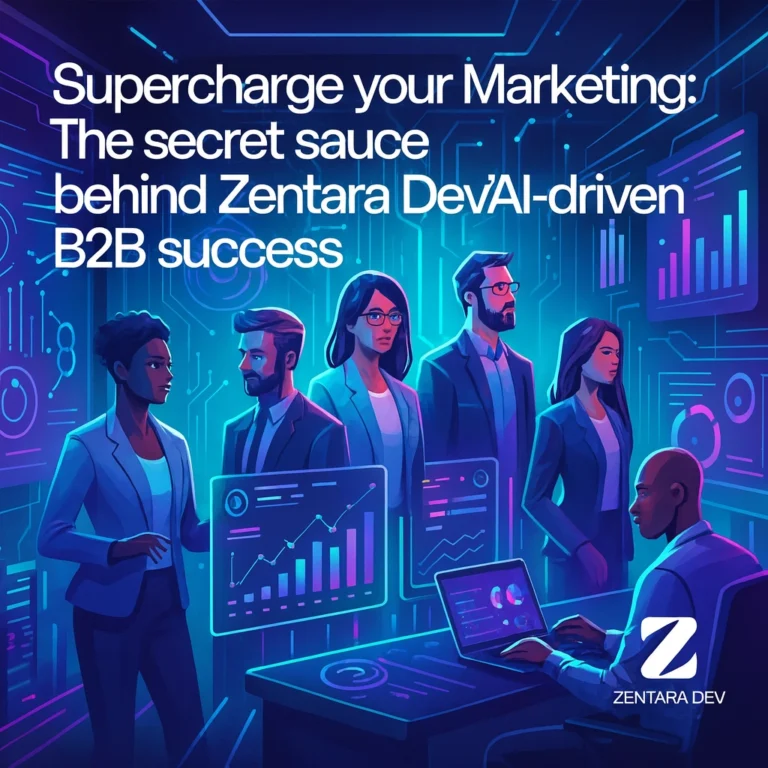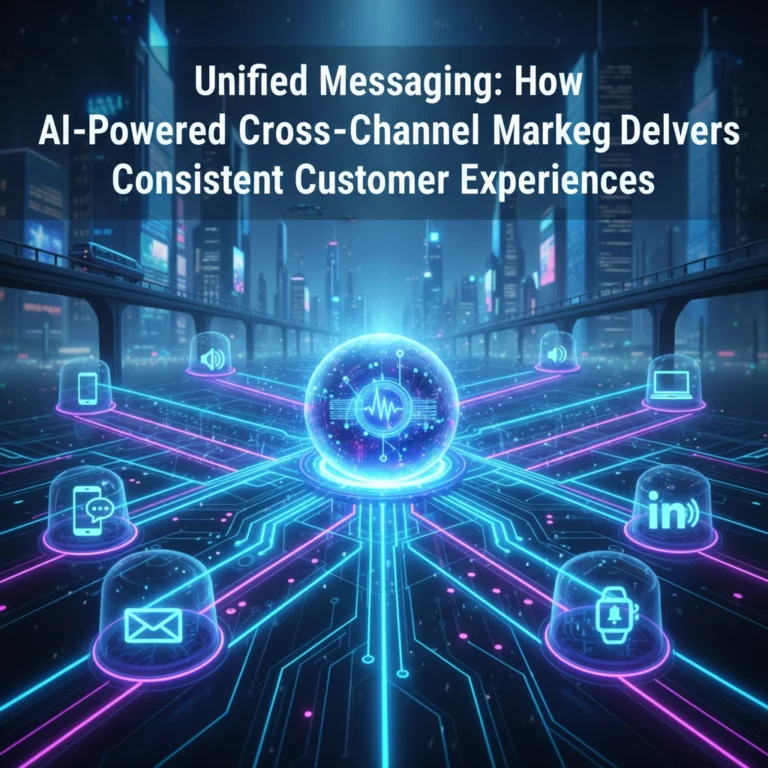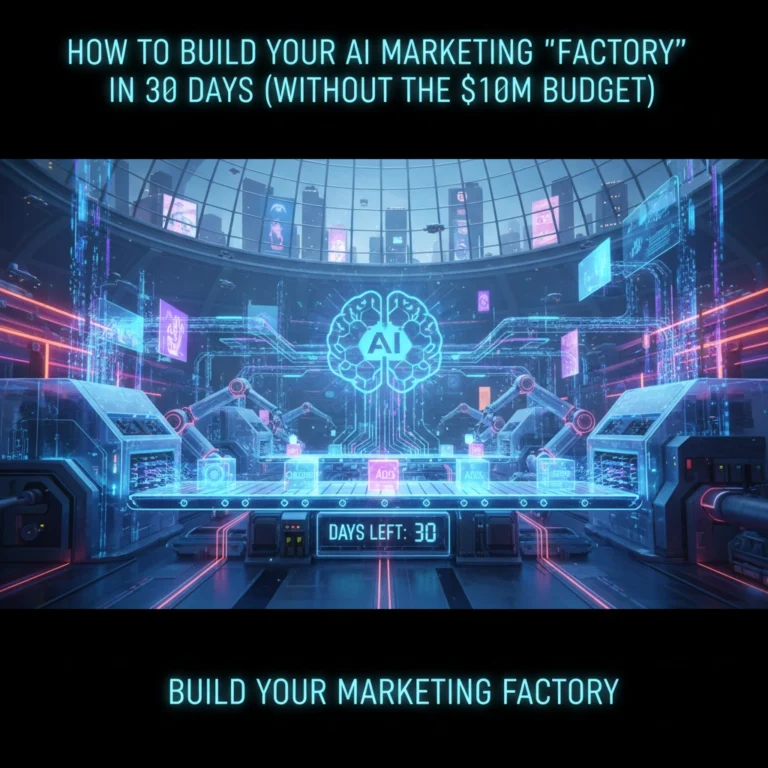Is Your Website Invisible to AI Search? 95% of Businesses Are Making This Critical Mistake
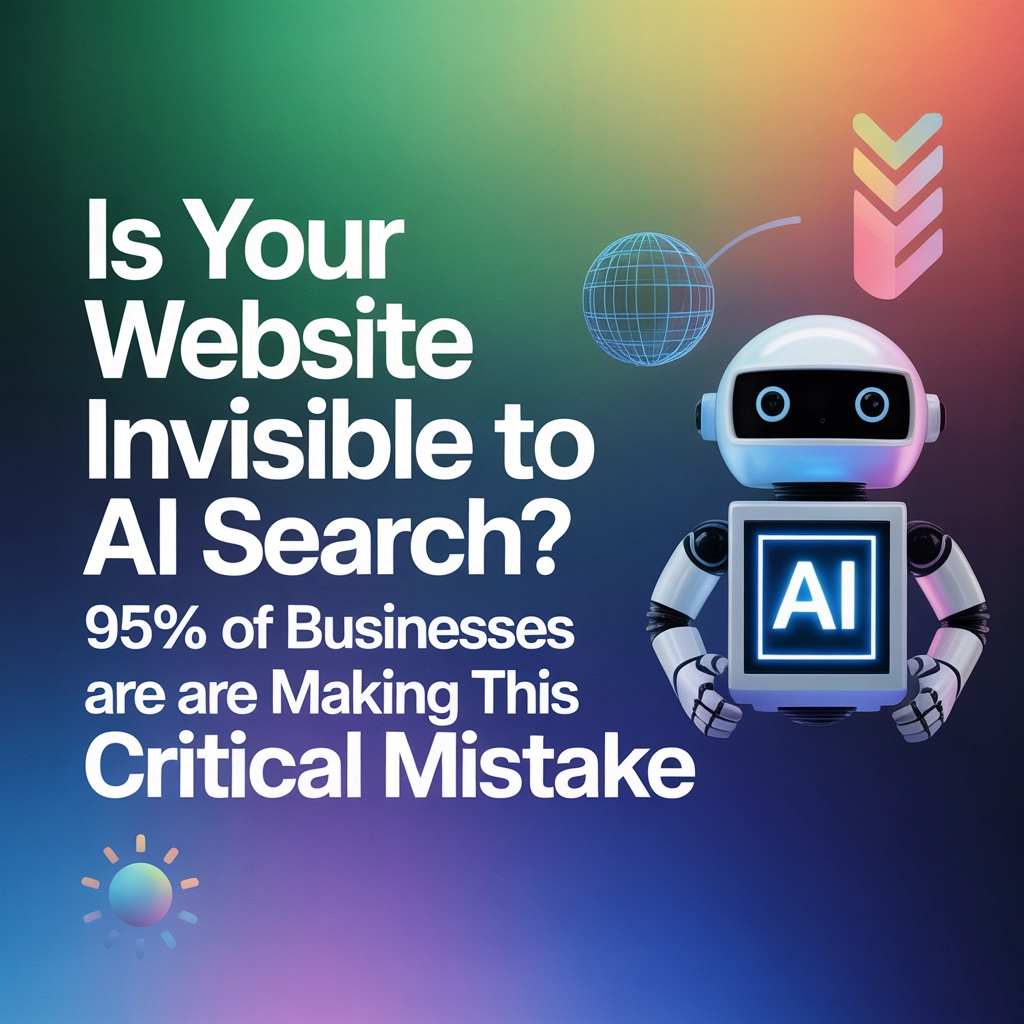
Picture this: you've spent thousands on SEO, your website ranks well on Google, and you're feeling pretty confident about your online presence. Then you ask ChatGPT or Perplexity a question about your industry, and your business doesn't even get mentioned. Welcome to the new reality: where 95% of websites have become completely invisible to AI search engines.
The numbers don't lie. As of late 2024, 57% of search results now feature AI Overviews, up from just 25% six months earlier. That means more than half of all searches are being answered directly by AI, bypassing traditional websites entirely. And if your business isn't showing up in those AI responses, you might as well not exist for a growing chunk of your potential customers.
The Critical Mistake Everyone's Making
Here's the brutal truth: most businesses are still playing by the old SEO rules while the game has completely changed. They're obsessing over keyword density, building backlinks, and trying to rank #1 on Google: all while AI search engines are using entirely different criteria to decide what content gets featured.
Traditional SEO was about gaming the algorithm. AI search is about actually being helpful. AI systems don't care how many times you stuff "best digital marketing agency" into your content. They care about whether your content genuinely answers questions, demonstrates expertise, and can be trusted.
The critical mistake? Continuing to optimize for search engines instead of optimizing for search intelligence.
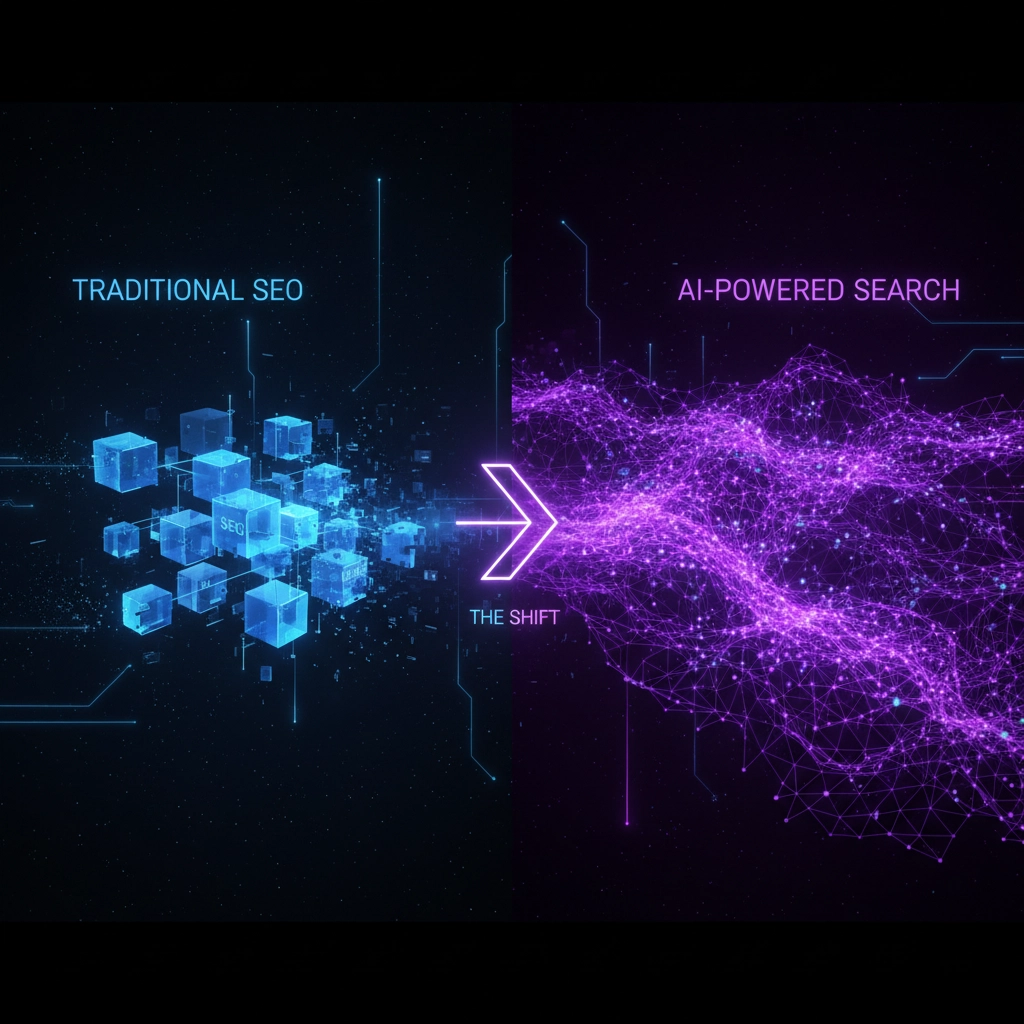
Why Your Website Has Vanished Into Thin Air
The New Search Reality
When someone asks ChatGPT, "What's the best way to improve my business's digital presence?" your beautifully optimized landing page isn't even in the running. Instead, AI pulls from sources it trusts: authoritative articles, verified data, and content that demonstrates clear expertise and value.
AI search engines use semantic understanding, not keyword matching. They're looking for content that:
- Directly answers specific questions
- Shows clear expertise and authority
- Provides actionable, trustworthy information
- Is structured in a way that makes sense to AI systems
The Traffic Apocalypse
Some e-commerce sites have lost 40% of their traffic overnight to AI Overviews. Not because they were penalized or outranked, but because their customers never needed to visit their websites. The AI gave them the answer they needed right in the search results.
For local businesses, the impact is even more severe. When someone asks, "Who should I hire for web development in my area?" and your business doesn't appear in the AI response, you've lost that customer before they even knew you existed.
The Visibility Crisis: What's Really Happening
Beyond Your Website
Here's what's really wild: AI search engines don't just look at your website. They pull information from everywhere: industry publications, review sites, social media, forums, news articles, and academic papers. Your visibility now depends on how your brand is discussed across the entire internet, not just on your own domain.
This means your perfectly optimized website might be invisible while a casual mention in a trusted industry blog gets featured prominently in AI responses. The new #1 position isn't ranking first on Google: it's being cited as a source in the AI's answer.

The Trust Factor
AI systems are incredibly picky about trust signals. Content that lacks clear authorship, doesn't cite sources, or feels promotional gets filtered out. Meanwhile, content that demonstrates genuine expertise and provides unbiased, helpful information gets prioritized.
This is why many business websites: designed primarily for conversion rather than education: are becoming invisible. They're optimized to sell, not to inform, and AI search engines can spot the difference.
The Solution: Enter Generative Engine Optimization (GEO)
It's Not Just SEO Anymore
Welcome to Generative Engine Optimization (GEO): the new discipline that's replacing traditional SEO. GEO focuses on making your content discoverable and citable by AI systems, not just rankable by search engines.
Key GEO Strategies:
1. Semantic Content Architecture
Stop thinking in keywords and start thinking in topics and concepts. Build content clusters that demonstrate comprehensive expertise on specific subjects. AI systems reward depth and interconnected knowledge over surface-level keyword targeting.
2. Authority Building Across Platforms
Your visibility now depends on being mentioned and cited across multiple trusted sources. This means:
- Contributing to industry publications
- Participating in expert roundups
- Getting featured in case studies
- Building genuine thought leadership
3. Answer-First Content Design
Every piece of content should directly answer specific questions your audience is asking. Structure your content to be easily digestible by AI systems: clear headings, logical flow, and definitive answers.
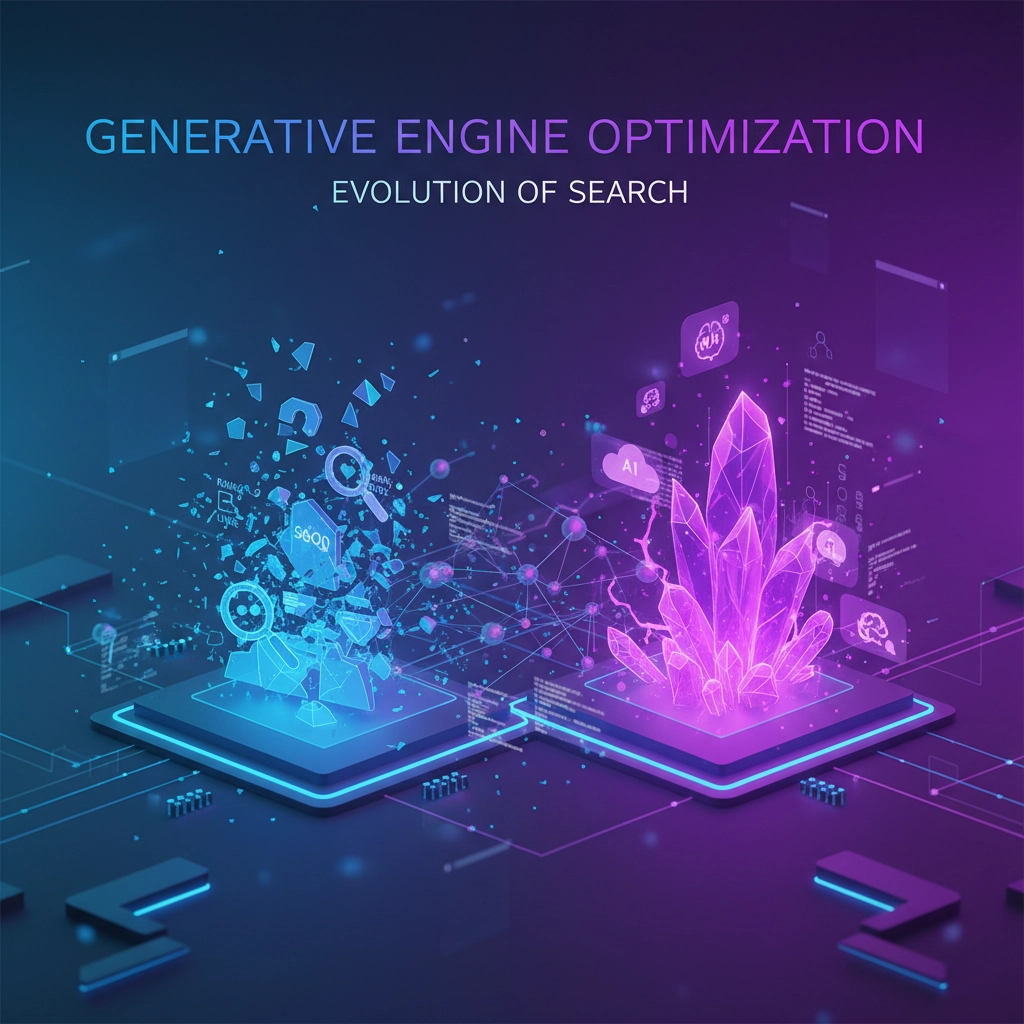
4. Cross-Platform Trust Signals
AI systems look for consistency across platforms. Your expertise needs to be validated not just on your website, but through:
- Professional profiles and bios
- Third-party mentions and citations
- Customer testimonials and case studies
- Industry recognition and awards
The Technical Side: Making Your Content AI-Readable
Structured Data Isn't Enough
While structured data helps, AI search goes much deeper. Your content needs to be semantically clear and contextually rich. This means:
- Writing in a natural, conversational tone
- Using clear, descriptive headings
- Providing context for technical terms
- Including relevant examples and case studies
- Citing credible sources
The E-A-T Evolution
Google's old E-A-T (Expertise, Authoritativeness, Trustworthiness) framework is now absolutely critical for AI search visibility. But it's evolved:
- Expertise: Demonstrated through consistent, accurate, detailed content
- Authoritativeness: Validated by third-party citations and mentions
- Trustworthiness: Shown through transparency, accuracy, and unbiased information
The Strategic Shift Your Business Needs
From Rankings to References
Success in AI search isn't about ranking #1 anymore: it's about being the source that gets referenced and cited. This requires a fundamental shift in how you think about content and online presence.
Instead of asking "How can I rank for this keyword?" start asking:
- "How can I become the go-to expert on this topic?"
- "What questions is my audience asking that I can definitively answer?"
- "How can I get mentioned by the sources that AI trusts?"
The Cross-Department Challenge
Here's the reality: optimizing for AI search isn't just an SEO job anymore. It requires coordination across:
- Content teams (for expert-level content creation)
- PR teams (for thought leadership and citations)
- Customer success (for case studies and testimonials)
- Product teams (for technical accuracy and innovation)

What This Means for Your Business Right Now
The businesses that adapt to AI search early will have a massive competitive advantage. While 95% of companies are still playing the old game, the smart ones are already building their AI search presence.
If you're in digital marketing, consulting, or any knowledge-based industry, this shift is happening whether you're ready or not. Companies that help other businesses navigate digital transformation: like what we do at Zentara: need to be especially proactive about establishing AI search visibility.
The Bottom Line
Your website isn't invisible because you're doing SEO wrong. It's invisible because you're doing the wrong kind of optimization entirely. The rules changed, but most businesses are still playing by the old playbook.
The good news? Most of your competitors haven't figured this out yet either. The businesses that understand and implement GEO strategies now will own the AI search landscape for their industry. The question is: will you be one of them, or will you keep optimizing for yesterday's search while your customers find answers from tomorrow's AI?
The choice is yours. But choose quickly: because AI search isn't the future anymore. It's happening right now, and 95% of businesses are about to learn this lesson the hard way.

